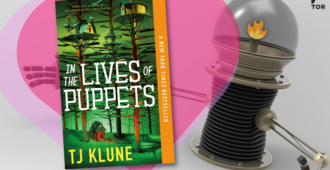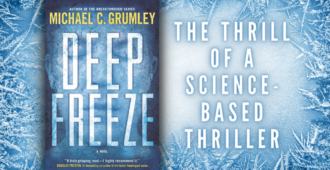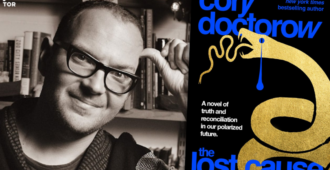Quintessence by David Walton
Written by David Walton
If you ever ride a time machine back to sixteenth century Europe, the first rule to keep in mind is this: Don’t get sick.
You won’t want to visit a doctor, no matter what your complaint. At the very least, he’ll cut you open and drain out some of your blood (or else attach some leeches to do the job more efficiently). He might prescribe a healthy dose of mercury to be rubbed on the offending wound or simply swallowed (they didn’t know it was toxic), or he might give you an emetic to flush out the sickness in an even more unpleasant way. If you had a serious problem, he might cut a large hole in your skull to let the sickness out directly (without anesthetic, of course). This procedure was called trepanation, and was attempted to cure problems ranging from migraines to epilepsy.
Why did they do such horrifying things? Didn’t they notice when their patients died? How could they keep on believing it would work?
Physicians of the day derived their ideas about the body from the symbolic and religious way in which they viewed the world. The concept of actually testing a theory didn’t occur to anyone; you took it on authority or because it logically followed from what you already knew. This kind of thinking led medical textbooks to claim, for instance, that men had fewer ribs than women, since God had removed one of Adam’s ribs in order to create Eve. It wasn’t considered necessary to actually count. (Besides, cutting up a dead body would be witchcraft, and for a doctor to actually touch a living woman or see her without her clothes on would be indecent.)
Physicians who wanted to know the truth—like Stephen Parris in my novel, Quintessence—had a hard path. In most European countries, it was illegal to dissect a human corpse, if not sacrilegious. You could be branded a demon worshipper and lose your practice, your property, or even your life. Early scientists were just starting to value experimentation as a source of knowledge but the field of medicine lagged far behind. No one minded if you messed around with heat or light or magnets or chemicals, but the human body was sacred. As a result, it wasn’t until the 19th century that the germ theory of disease was understood, and well into the 20th century before doctors started washing their hands.
Quintessence is about people who aren’t content with such limits. Like Christopher Sinclair, who tries to distill an elixir that will heal any disease and tests the result by drinking it himself. Like Stephen Parris, who cuts open corpses in an upper room by candlelight, defying the king and risking his own death. Or like his daughter, Catherine, who wants to study and experiment like her father, unwilling to accept the restrictions set on her by society. The truths they seek can’t be found in England, so they travel to the edge of the world in search of the purest form of matter and the source of life: quintessence. The journey is full of dangers: shifting skies and currents, starvation, mutiny, and monsters shaped by quintessence itself.
But it just might be safer than a visit to the doctor.
…………………………
From the Tor/Forge April newsletter. Sign up to receive our newsletter via email.
…………………………
More from the March Tor/Forge newsletter:
- How I Learned to Stop Grumbling and Love Vampires by Carrie Vaughn
- 2013 – The Year of the Virus by Joshua Alan Parry
- The Rithmatists Sweepstakes








I enjoyed it but I didn’t love it. I think I wanted more connection with the characters. Or maybe just one character.
Good post, David. The book sounds intriguing – just gave the excerpt a quick read. Will keep my eye out for it. : )
Haha! Loved this post!